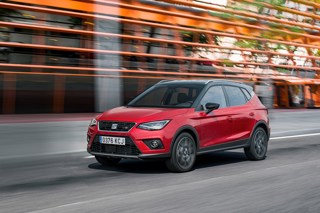Car manufacturers are expected to streamline their model ranges by removing optional extras as a result of WLTP, according to Autovista Group.
Its study found that commonly selected combinations of options can have a significant impact on tax.
“NEDC emissions testing was based on vehicles with limited equipment fitted as standard,” said Samuel Keates, director of specifications at Autovista Group.
“Under the new WLTP regime, worst- and best-case cars need to be tested with their optional equipment fitted to present a clear view on more achievable driving emissions and fuel consumption for each level of specification that is offered.”
Autovista examined the impact of options on a specific variant of a premium-brand D-segment model that is a popular choice with fleet buyers. Depending on body style and drivetrain, the model variant has CO2 emissions ranging from 152-166g/km as measured by the WLTP test. In NEDC-correlated terms, the figures range from 124-136g/km.
Although this is not a vast range, it does have tax implications. For example, fitting a tow bar can increase CO2 emissions by 1-2g/km because of the impact on weight and aerodynamics. A panoramic roof generates a similar effect. An increase in wheel size affects the weight and rolling resistance of the car; fitting 18-inch wheels instead of 17-inch wheels adds about 2g/km more in CO2 emissions. Fitting run-flat tyres as an option instead of the standard tyre repair kit also increases emissions by about 1g/km. It is therefore easy to see how a combination of options can add up to make a difference to the emissions profile of a car and, in turn, its tax liability.
These changes may end up costing manufacturers, as the European Commission has stated that any increase in costs must not be passed on to the consumer.
Premium brands typically have more optional extras than vehicles from the volume manufacturers and so could be more adversely affected. Conversely, Japanese and Korean OEMs could stand to benefit as their strategy has typically been to compete by offering higher levels of specification as standard on their cars than their European peers but at a similar price point.
Given the additional challenges in gaining WLTP type approval for all model variants, the additional complexity for consumers and dealers, and the higher tax liabilities themselves, it is not entirely surprising that many OEMs are consolidating their optional equipment offerings.
BMW is already looking to streamline its manufacturing process, offering fewer engine variants and less equipment options and SEAT is also now offering its cars with fixed trim levels instead of options.





















Nigel Boyle - 28/08/2018 10:49
The end of optional extras AND the end of the company car! The fine balance between a cash option or a company car has been tilting in favour of cash for a while now. This interim year with a mix of WLDP and NEDC has made a big jolt, all indications are it will be even more next year. I have spent some time looking at existing costs on P11D for employees and in many cases the change in their tax code by simply removing the company car with NO cash will give them more than is needed to take out a PCH vehicle. Next year this will be the case for all employees, the only issue being their credit rating for mortgages etc with an extae £30k or so added to their liabilities, the cash allowance will adjust for this.